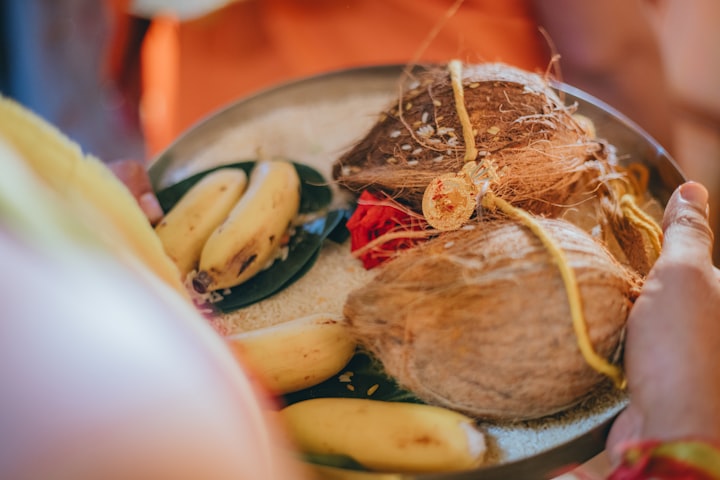
Kabaddi, often hailed as the "Game of the Masses," is a traditional Indian sport that has gained international recognition for its unique blend of skill, strategy, and physical prowess. Rooted in ancient Indian culture, Kabaddi is a thrilling team sport that requires players to tag opponents while holding their breath and chanting "Kabaddi" repeatedly. In this article, we will delve into the history, rules, and the enduring popularity of Kabaddi both in India and on the global stage.
A Glimpse into Kabaddi's Origins
Kabaddi's history can be traced back over 4,000 years, making it one of the oldest team sports in the world. The word "Kabaddi" is believed to have originated from the Tamil words "kai" (hand) and "pudi" (to hold), reflecting the game's fundamental concept of hand-tagging opponents.
Kabaddi's roots can be found in ancient Indian folklore and mythology. It was initially a way for warriors to develop strength, stamina, and mental fortitude, essential qualities for success on the battlefield. Over time, Kabaddi evolved into a popular sport enjoyed by people of all ages, transcending social and cultural boundaries.
The Rules and Gameplay
Kabaddi is played on a rectangular field, divided into two halves. Each team takes turns sending a "raider" into the opponent's half while the opposing team sends defenders to stop the raider. The raider's objective is to tag as many defenders as possible and return to his half, all while chanting "Kabaddi" without taking a breath. The defenders' goal is to prevent the raider from returning to his half before he runs out of breath.
Key rules and aspects of Kabaddi include:
Raider's Chant: The raider must continuously chant "Kabaddi" without taking a breath, indicating that they are still in the game.
Touch Points: The raider scores points by touching or tagging defenders and safely returning to his half. Each tagged defender earns one point for the raider's team.
Bonus Points: Bonus points are awarded to the raider if he successfully crosses a line in the opponent's half or touches two or more defenders in a single raid.
Defender's Strategy: Defenders use various techniques like ankle holds, waist holds, and ankle taps to prevent the raider from escaping.
Tackling: A defender must tackle the raider below the shoulders and above the waist. Excessive force or dangerous tackles are penalized.
Raid Limit: Each team has a limited number of raids, typically 20 in a standard match. Once all raids are exhausted, the teams switch sides, and the game continues.
Kabaddi in India
- Kabaddi enjoys immense popularity in India and is one of the country's most cherished sports. The sport has a massive following, with Kabaddi tournaments drawing large crowds, both at the national and international levels.
- Pro Kabaddi League: The Pro Kabaddi League (PKL), launched in 2014, revolutionized the sport's landscape in India. PKL brought together top players from around the world, introduced a franchise-based model, and showcased Kabaddi as a glamorous and exciting sport. This league significantly boosted the sport's viewership and created a platform for emerging talent.
- International Success: The Indian national Kabaddi team has dominated international competitions, winning multiple World Cup titles and Asian Games gold medals. Indian Kabaddi players like Anup Kumar, Ajay Thakur, and Monu Goyat have achieved legendary status.
- State-Level Competitions: Kabaddi is a prominent sport in Indian states like Haryana, Punjab, Maharashtra, and Tamil Nadu. Inter-school and inter-college Kabaddi competitions are a breeding ground for young talent.
Global Reach
In recent years, Kabaddi has gained international recognition and is now played in over 40 countries. The sport has been included in multi-sport events like the Asian Games, and various international Kabaddi federations promote its growth.
Asian Games: Kabaddi has been a part of the Asian Games since 1990, with India consistently dominating the competition. However, other countries like Iran, Pakistan, and Bangladesh have made significant strides and posed tough challenges.
International Kabaddi Federation (IKF): The IKF, established in 2004, has played a crucial role in promoting Kabaddi on the global stage. The federation organizes international tournaments and oversees the development of the sport worldwide.
Challenges and Future Outlook
While Kabaddi's popularity continues to grow, the sport faces several challenges, including:
Global Standardization: To further the sport's global reach, there is a need for standardized rules, playing conditions, and infrastructure in non-traditional Kabaddi-playing nations.
Youth Development: Investing in youth development programs and coaching is crucial for nurturing talent and ensuring the sport's longevity.
Women's Kabaddi: Women's Kabaddi is gaining momentum in India and globally, but it still needs more recognition and support.
Kabaddi is more than just a sport; it is a testament to the rich cultural heritage and traditions of India.
About the Creator
Loki
As a content writer, I have a passion for creating engaging, informative, and compelling written content for a variety of industries and audiences...






Comments
There are no comments for this story
Be the first to respond and start the conversation.